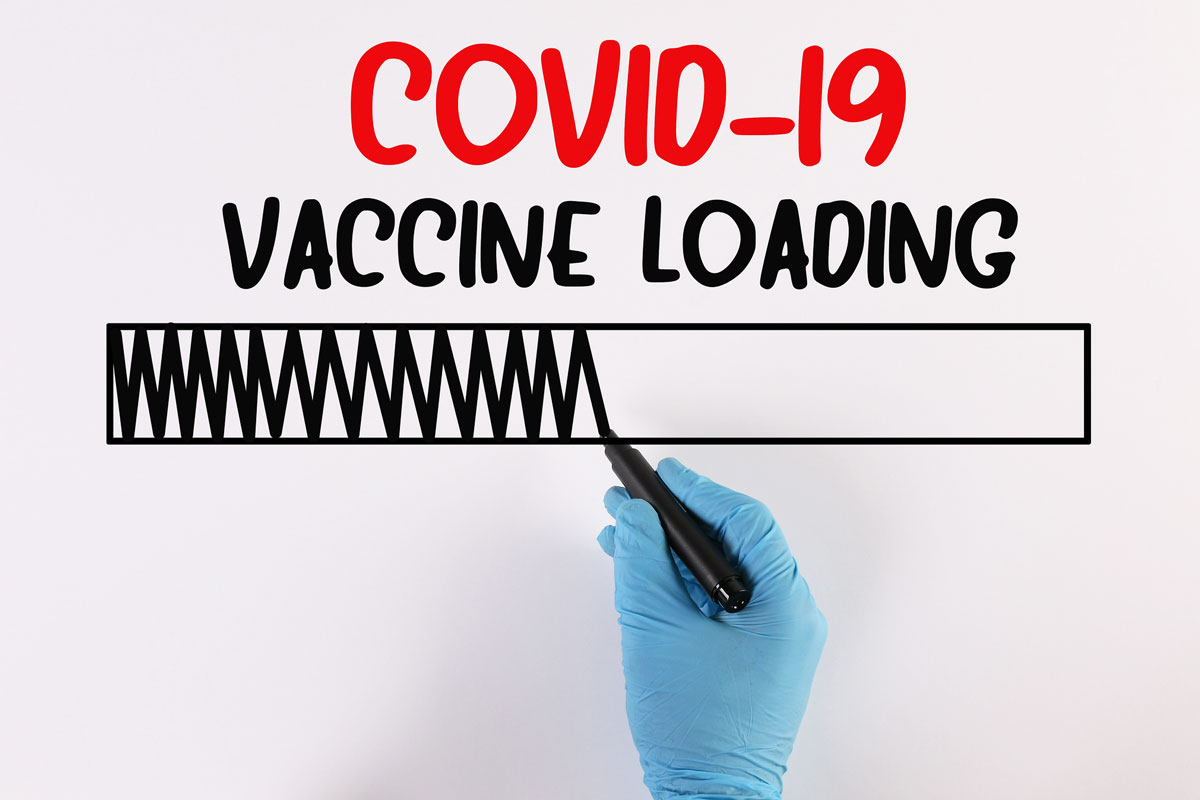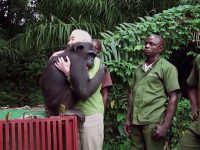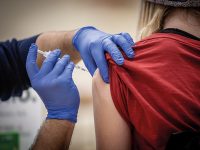COVID-19 vaccines: remain cautious
We analyse this week's announcement by Pfizer with several expert voices

On 9 November, Pfizer announced in a press release that their COVID-19 vaccine candidate, developed in conjunction with BioNTech, shows 90 % efficacy one week after the second dose was administered. According to the note, 94 infected cases have been assessed instead of the 62 that were originally established for this mid-trial analysis. The study, currently in phase III and involving 43,538 volunteers, remains open until the 164 confirmed cases of COVID-19 are reached. However, this information, which was received with euphoria by the main stock exchanges around the world, is limited to the company’s press release and the data that will allow it to be analysed by the scientific community has not yet been published.
As the week went by, we learned that on the same day, Albert Bourla, a Pfizer executive, had sold more than half his shares in the company at a large profit. Also these days the initial purchase of 200 million doses of this vaccine by the European Union has been closed with the option to extend it to 100 million more doses. Other laboratories working on vaccines against COVID-19 have also launched new press releases. For example, Moderna has announced that it has now closed the backlog of cases required for a provisional Phase III trial and that results will probably be available before the end of the month. The Gamaleya Centre and the Russian Direct Investment Fund have stated, also without publishing any data, that the Sputnik V vaccine shows 92 % efficacy in the trial they are conducting.
Fernando González-Candelas: «From a scientific point of view, this is an announcement that has not been backed up by data. The entire scientific community is waiting for the analysis data to be able to contrast them»
How should we interpret statements such as those made by Pfizer and BioNTech, which trigger so many reactions? «We are getting too used to announcing scientific results in press conferences. The validated data should be published first. Now they give us the news before we see the results, we do not know the data», explains Salvador Macip, a doctor and researcher at the University of Leicester and the Open University of Catalonia. Macip continues: «One important piece of information that they have not yet provided is protection by age. How much protection does this vaccine provide, and for how long?» Fernando González-Candelas, Professor of Genetics at the University of Valencia and researcher at I2SysBio (UV-CSIC) and FISABIO, agrees: «From a scientific point of view, this is an announcement that has not been backed up by data. The entire scientific community is waiting for the analysis data to be able to contrast them. In this sense, the information in the press release is completely insufficient for an evaluation». What both highlight is that this is a very innovative vaccine and, if the data are confirmed, it would be positive. María Garcés-Sánchez, a paediatrician and member of the Spanish Association of Pediatrics Advisory Committee on Vaccines, agrees: «It is a large trial with a significant number of patients. If what the statement is saying is true, it would be best news, because we are talking about a completely new type of vaccine, messenger RNA».
Vaccines from new approaches

Vaccines, specialists insist, are some of the safest drugs. / Gustavo Fringe-Pexels
María Garcés-Sánchez herself explained in a recent article published in Mètode the various approaches being used in the COVID-19 vaccine candidates. Pfizer and BioNTech’s vaccine, like Moderna’s, is based on messenger RNA. «It is a vaccine in which a fragment of the virus’s hereditary material is introduced to reach the interior of the vaccinated individual’s cells, and these cells are responsible for synthesising a protein that is normally synthesised by the virus, as if this person were infected, in such a way that it triggers an immune response that is very similar to the one produced by the infection», explains Fernando González-Candelas. For María Garcés-Sánchez, this approach could revolutionise the world of vaccines: «Just imagine… any pathogen, whether viral or bacterial, has a genome from which you can specifically extract the sequence of the proteins from which you are interested in generating antibodies to block the disease, and with a technology that is relatively “simple” and easy to produce, because neither the virus nor the bacteria need to be cultivated… you would turn the world of vaccinology upside down». «This is very revolutionary because until now there has not been a vaccine produced massively with RNA», says Salvador Macip. And he adds: «There are three or four new models under study, very new vaccines that have now received the final push. It is important to think that in the future we will have a technology available that we did not have before. In the past, when we had to develop a new vaccine, we did it as usual. Now, however, we will have three or four new ways of making vaccines».
María Garcés-Sánchez: «If what the statement is saying is true, it would be best news, because we are talking about a completely new type of vaccine, messenger RNA»
One of the problems with this vaccine is that RNA degrades very easily and having to store doses at -80° may make this option less attractive. «Vaccination, when it comes to -80°, has always had difficulties to access our country, basically because no such freezer is foreseen in the cold chains of the clinics. Now we are in a totally different situation, so the structure of the centres will have to be modified to be able to store vaccines», says María Garcés-Sánchez. Other candidates, developed from different approaches, will not have this difficulty and this could mean that they will get where this one or others like it will not. Several vaccine trials are also underway in Spain and are continuing despite the lack of funding: «The investment made in Spain at the moment is ridiculous and carrying out a clinical trial requires a very high economic investment. I am concerned that preclinical products such as those we have now are not sufficiently funded», laments María Garcés-Sánchez. What seems quite clear to the three of us is that over the next year we will not be talking so much about the vaccine, but rather about vaccines, in the plural.
2021 will be the year of vaccines
The scenario that specialists are considering for the coming year is that of several approved vaccines that will allow us not to depend on a single product. «Perhaps some will work better than others in certain population groups, others will be easier to distribute, etc., and the sum of all of them will allow us to reach all the people who need to be vaccinated to achieve group immunity», states Salvador Macip. The cost of vaccines, and therefore access to them, is a matter of concern. The researcher notes that all the doses should be free for the user so that everyone can access them. «But what will happen in some parts of Africa and Asia?» María Garcés-Sánchez is also concerned: «I am very worried about how they will set the prices, because they need to be affordable for everyone».

Even if vaccines are available, specialists agree that immunisation will not be quick but will progress gradually and that hygiene and social distancing measures will have to be maintained for quite some time. / Clovis Wood-Unsplash
Will a scenario with various vaccines and press releases like the one we are seeing these days contribute to people getting vaccinated? In the last survey of the Spanish Centre for Sociological Research (CIS), 43.8 % of people surveyed would not get the vaccine immediately. In the survey «Monitorización del comportamiento y las actitudes de la población relacionadas con la COVID-19 en Espanya (COSMO-SPAIN): Estudio OMS» (“Monitoring of the behaviour and attitudes of the population related to COVID-19 in Spain (COSMO-SPAIN): a WHO study”) coordinated by the Carlos III Health Institute, the percentage of people willing to get the vaccine fell from 70 % in July to 43 % in September. What if we have to get vaccinated every year? «We already know what that means, that vaccination coverage is greatly reduced, especially in certain groups. That’s a problem, so we have to think that the end of the story is not just having effective vaccines», says Fernando-Gonzalez Candelas. This point is important because specialists agree that immunisation occur quickly, but progressively, and that hygiene and social distance measures will have to be maintained for quite some time.
From her experience as a paediatrician, María Garcés-Sánchez points out: «I think that one group will reject everything: virus and vaccine deniers… but, on the other hand, there will be an important group of the population that correspond to what would be the normal curve, who will want the vaccine because they have something to protect them in a situation of fear and to feel that they are free from this context in which we are completely enclosed and see no way out». And she adds: «I do not see anything that makes me hesitate and if we health workers are vaccinated, the population will want the vaccine».
Salvador Macip: «Vaccines are very safe drugs, the kind that cause the fewest complications of all. And this is a message that we must transmit»
Salvador Macip believes that if we have vaccines, but nobody receives them, they are useless. He therefore proposes that we should start to inform the public now to overcome any potential misgivings: «Vaccines are very safe drugs, the kind that cause the fewest complications of all. Normally the vaccine only causes specific and minimal problems. And this is a message that we must transmit. If the vaccines have passed all the protocols, they will be safe. Therefore, we have to start this communication campaign and fight against all the misinformation from anti-vaccination activists, who are taking advantage of this moment to try to convince people of their ideas and, above all, overcome this idea of speed, because the vaccines are being developed quickly, but correctly».
Criticisms of the communication of the pandemic
What seems clear is that the management of vaccine communication in particular, and of the pandemic in general, can be improved and should not be so marked by political and economic interests. Is there too much confusion? «I think we are missing an opportunity to be more informative because the data that are appearing are either too sophisticated for people to understand, or so poor that they become very confusing», reflects María Garcés-Sánchez.
Fernando González-Candelas points out another issue for reflection. During the pandemic, scientific voices and articles about COVID-19 have multiplied. So have the preprints, academic manuscripts which, before going through the peer review process required for scientific publication, are uploaded to thematic servers to disseminate them and debate ideas. The problem is that with the health crisis these preprints have reached the media and the public in greater numbers. If it is not made clear that this knowledge is not proven and consolidated but is still ongoing, unreviewed and unconfirmed, it can contribute to confusion. «Anyone can upload a scientific article to a preprints server and make a press release. And there are preprints that have been widely commented on in the press and then not published. This is very dangerous», says Fernando González-Candelas.

For the doctor and researcher Salvador Macip, the communication of the pandemic during the summer generated confusion and that led the population to relax their protection measures against the virus. / Anna Shvets-Pexels
Political interference also makes it difficult for science to function. We have seen this in Russia or in the United States where former President Donald Trump pushed for a pre-election vaccine. «The problem is not only one of governments or journalists, it is quite cross-cutting», says Salvador Macip. He continues: »As we were saying, a pharmaceutical company cannot announce the result of a major trial like this one halfway through the study and without presenting the data. This goes against all the principles of scientific communication. You present the results when you can show the data, you do not release anything to the press without showing the data because then there is no transparency».
Salvador Macip thinks that there has been an obstacle from the beginning: «Communication has been very bad in many places. In Spain, everywhere, from day one, and at all levels. You cannot have a press conference and when it ends you do not know what you have been told or what you have to do…». The doctor and researcher points to the summer, in the move towards the new normality, as a key moment when the information available should have been improved: «t was very confusing and made people relax. And the problems we had in the summer are the basis of this second wave that we are seeing now. Spain experienced it before because part of the problem was that the fact that we needed to keep monitoring the situation was not well communicated». In this context, it seems necessary to continue reflecting on the matter to avoid falling back into the mistakes that have dragged on throughout this pandemic or «even in the face of the next one», he concludes.





